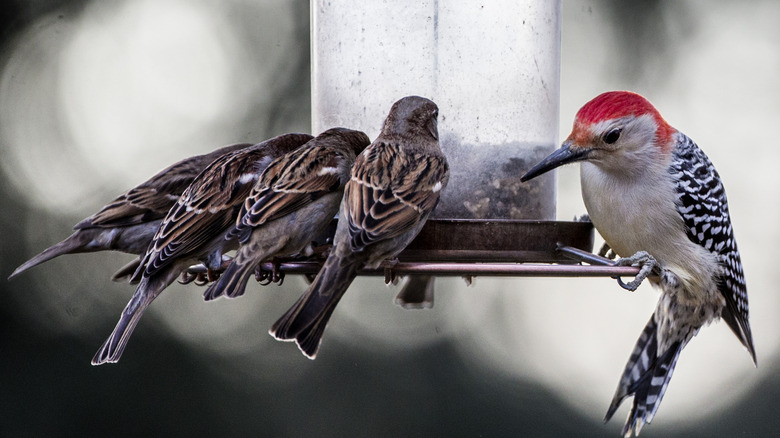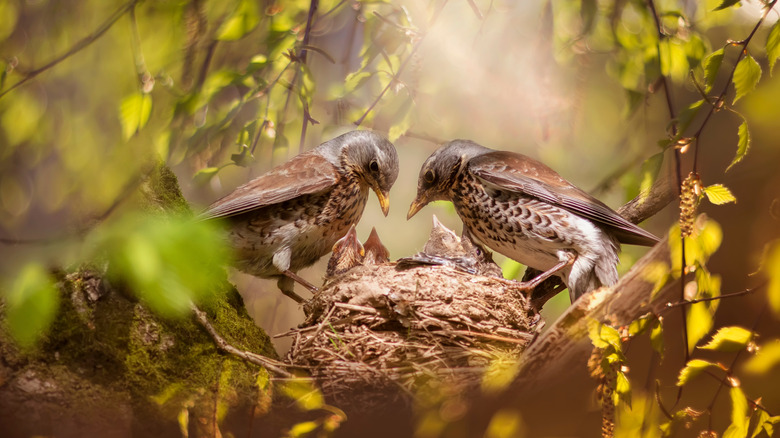How Feeders Can Reduce Bird Infidelity In Your Backyard
Surprisingly, the backyard bounty of your bird feeder has a real-world impact on avian fidelity. While your feathered visitors might seem like loyal lovebirds, their relationships are far more complex. Infidelity — scientifically termed extra-pair copulations (EPCs) or extra-pair paternity (EPP) — is astonishingly common in the avian world. A 2019 study published in Molecular Ecology found that 75% of the 342 bird species studied are known to engage in extra-pair paternity.
Why do birds cheat? Evolution offers a few explanations. Female birds may seek genetically diverse mates to increase their offspring's chances of survival. In other cases, EPCs act as insurance against infertility or foster cooperative behaviors, like defense against predators. Species vary widely, too. For instance, well over half of reed bunting nests contain extra-pair offspring, while Florida scrub jays almost never stray.
Not unlike in human society, this behavior isn't without risks. Male birds often reduce parental care if they suspect infidelity, while female birds risk punishment from their mates if caught. Yet, amid all this drama, your backyard bird feeder might be reshaping avian fidelity in surprising ways. Hanging a bird feeder in your yard can come with some hidden dangers, but it may just be the unexpected hero of this wild-winged love story.
How backyard bird feeders lower bird infidelity
Variety may be the spice of life — and bird infidelity might be common — but your backyard bird feeder holds more sway over these behaviors than you likely thought. Research on house sparrows published in the journal Behavioral Ecology, for example, has revealed an unexpected trend: Supplemental feeding can significantly reduce the rates of EPCs. When food is abundant, competition for resources decreases, leading to more stable bonds and less temptation to stray.
This phenomenon isn't limited to house sparrows, either. The aforementioned study in Molecular Ecology suggests that supplemental feeding affects behavior across various species by altering environmental pressures. In urban areas, where natural food sources might be scarce, bird feeders become a key resource that can stabilize bird communities and even impact genetic diversity. By reducing the drive to seek out multiple mates for survival-based reasons, feeders may be subtly reshaping avian breeding behaviors.
However, it's not all rosy. Improperly maintained feeders can spread disease — fortunately, songbirds and other common winged creatures known to frequent our yards aren't known carriers of the avian influenza virus, or "bird flu" — disrupt natural foraging behaviors, and even lead to conflicts between species. To ensure backyard feeding remains a positive force, responsible practices are essential. This includes choosing species-appropriate seeds and strategically placing them to minimize risks from predators (looking at you, kitty cat!) and window collisions. Additionally, a homemade bird seed catcher can help keep the feeding area clean, but other small changes, like spacing feeders apart to reduce crowding, can also improve conditions for visiting birds and make them show visible signs that they're happy.

